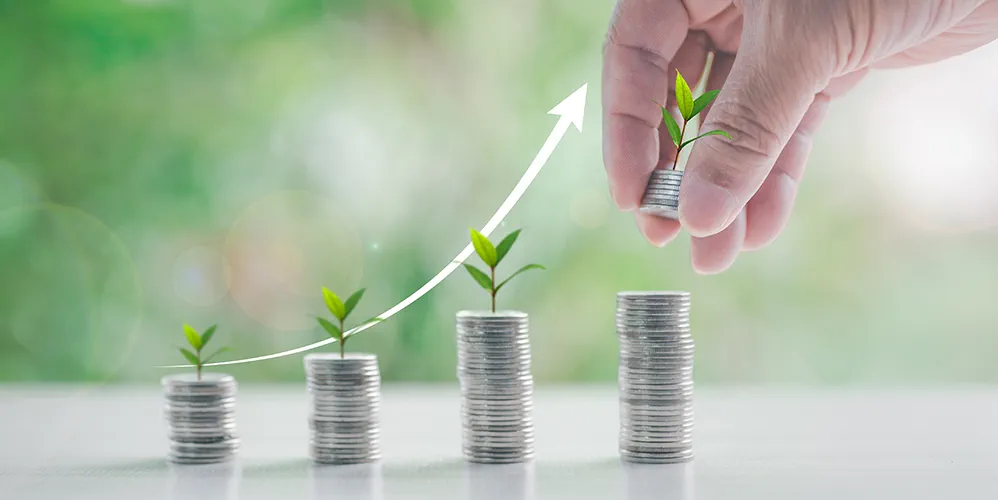
Understanding Fixed Deposit Benefits for Senior Citizens: A Complete Guide
28 Aug 2024

Table of Content
Introduction
For senior citizens, securing financial stability and earning a reliable income from their savings is crucial. Fixed deposits (FDs) are one of the most popular investment options for this demographic due to their safety and assured returns. This guide explores the fixed deposit interest for senior citizens, the features of these deposits, their financial benefits, comparisons with other investment options, and tips on choosing the right FD.
Features of Fixed Deposits for Senior Citizens
Fixed deposits for senior citizens come with several features designed to cater to their specific financial needs. Some key features include:
1. Higher Interest Rates: Banks typically offer higher interest rates on FDs for senior citizens compared to regular FDs. This higher rate ensures better returns on their investments.
2. Flexible Tenure: Senior citizens can choose the tenure of their FD based on their financial goals and requirements, ranging from a few months to several years.
3. Premature Withdrawal Facility: Although FDs are meant to be held until maturity, many banks allow senior citizens to withdraw their deposits prematurely with minimal penalties. This flexibility ensures that they can access their funds in case of emergencies without facing significant financial loss.
4. Tax Benefits: Some fixed deposits offer tax-saving benefits under Section 80C of the Income Tax Act, which can be advantageous for senior citizens. Investing in these FDs can help them reduce their taxable income, leading to significant tax savings.
Additionally, senior citizens can benefit from special schemes offered by banks that cater specifically to their needs. These schemes might include higher interest rates, additional bonuses, or other incentives to attract senior citizen investors.
Financial Benefits of Fixed Deposits for Senior Citizens
The financial benefits of fixed deposits for senior citizens are substantial and can significantly enhance their financial well-being. These benefits include:
- Stable and Guaranteed Returns: Unlike market-linked investments, FDs offer assured returns, making them a safe investment option for senior citizens who prefer stability. The interest rates are fixed at the time of investment, ensuring that there are no fluctuations in the returns.
- Regular Income: Senior citizens can opt for periodic interest payouts, such as monthly or quarterly, to ensure a regular income stream. This feature is particularly beneficial for those who rely on their investment income to meet daily expenses.
- Capital Protection: The principal amount in an FD is protected, ensuring that the investment does not lose value over time. This security is a significant advantage for senior citizens who cannot afford to risk their hard-earned savings.
- Low Risk: FDs are low-risk investments compared to equities or mutual funds, making them ideal for risk-averse senior citizens. The certainty of returns and the protection of the principal amount make FDs a preferred choice for those who prioritize safety over high returns.
Furthermore, some banks offer additional benefits such as health insurance or accidental death cover to senior citizens who invest in fixed deposits. These added benefits enhance the overall value of the investment and provide peace of mind to the investors.
Comparing Fixed Deposits with Other Investment Options
When considering investment options, it's important to compare FDs with other available avenues. Here's a brief comparison:
- Fixed Deposits vs. Savings Accounts: While both options offer safety, FDs provide higher interest rates compared to regular savings accounts, making them more lucrative for long-term savings. For example, a senior citizen might earn an interest rate of 6% on an FD compared to 3.5% on a savings account.
- Fixed Deposits vs. Mutual Funds: Mutual funds can offer higher returns, but they come with higher risk. FDs, on the other hand, offer guaranteed returns with no risk of capital loss. This makes FDs a better option for senior citizens who are risk-averse and prefer stable returns.
- Fixed Deposits vs. Stocks: Stocks have the potential for significant returns but are highly volatile and risky. FDs are stable and provide assured returns, making them suitable for conservative investors. While investing in stocks can lead to high gains, the risk of loss is also substantial, which may not be suitable for senior citizens.
- Fixed Deposits vs. Real Estate: Real estate can offer good returns and appreciation, but it requires a larger investment and involves market risks. FDs are more accessible and liquid, providing easier access to funds. For instance, selling a property can take time and the process can be complex, whereas breaking an FD is relatively simple and quick.
- Fixed Deposits vs. Government Bonds: Government bonds are low-risk investments similar to FDs but typically offer lower interest rates. While government bonds are backed by the government and are very safe, the returns may not be as attractive as those offered by fixed deposits.
How to Choose the Right Fixed Deposit for Senior Citizens
Choosing the right fixed deposit involves considering several factors:
1. Interest Rates: Compare interest rates offered by different banks and financial institutions to ensure you get the best return on your investment. Even a small difference in interest rates can significantly impact the overall returns, especially for large investments or long tenures.
2. Tenure: Select a tenure that aligns with your financial goals. Short-term FDs offer liquidity, while long-term FDs provide better interest rates. It's important to balance the need for liquidity with the desire for higher returns.
3. Bank's Reputation: Choose a bank or financial institution with a good reputation and strong financial standing to ensure the safety of your investment. It's advisable to opt for well-established banks with a track record of reliability and customer satisfaction.
4. Premature Withdrawal Penalty: Check the penalty charges for premature withdrawals, as this can impact your returns if you need to access your funds early. Some banks might offer more favorable terms for premature withdrawals, which can be an important consideration.
5. Additional Benefits: Look for additional benefits such as tax-saving options, ease of online account management, and customer service quality. These added features can enhance the overall investment experience and provide additional value.
Moreover, senior citizens should consider the frequency of interest payouts. Some banks offer monthly, quarterly, or annual interest payouts, which can be selected based on the individual's need for regular income. Additionally, understanding the compounding frequency (quarterly, half-yearly, or yearly) is crucial as it affects the overall returns on the investment.
Conclusion
Fixed deposits are a reliable and safe investment option for senior citizens, offering higher interest rates, stable returns, and low risk. By understanding the features and benefits of FDs, comparing them with other investment options, and choosing the right FD, senior citizens can secure their financial future and enjoy a steady income stream. It's essential to consider individual financial goals and requirements when selecting a fixed deposit to maximize the benefits and ensure financial stability.
In summary, fixed deposits provide a combination of safety, assured returns, and flexibility, making them an ideal choice for senior citizens. By taking the time to research and compare different options, senior citizens can make informed decisions that align with their financial objectives and risk tolerance. Whether you're looking to preserve capital, generate regular income, or benefit from tax-saving opportunities, fixed deposits offer a versatile and dependable investment solution.
Popular Articles
Tag Clouds
Related Articles










-
Disclaimer
The contents of this article/infographic/picture/video are meant solely for information purposes and do not necessarily reflect the views of Bank of Baroda. The contents are generic in nature and for informational purposes only. It is not a substitute for specific advice in your own circumstances. Bank of Baroda and/ or its Affiliates and its subsidiaries make no representation as to the accuracy; completeness or reliability of any information contained herein or otherwise provided and hereby disclaim any liability with regard to the same. The information is subject to updation, completion, revision, verification and amendment and the same may change materially. The information is not intended for distribution or use by any person in any jurisdiction where such distribution or use would be contrary to law or regulation or would subject Bank of Baroda or its affiliates to any licensing or registration requirements. Bank of Baroda shall not be responsible for any direct/indirect loss or liability incurred by the reader for taking any financial decisions based on the contents and information mentioned. Please consult your financial advisor before making any financial decision.
Difference Between Visa and Mastercard: Which One is Right for You?
When it comes to choosing a debit, credit or prepaid card, one of the most common questions is, "Visa card vs Mastercard: which one is better?" Both Visa and Mastercard are widely recognized and accepted worldwide, but there are differences between the two that may influence your decision. This guide will explore these differences, helping you understand which card might be better suited to your needs.
What to Do When You Forget Your ATM PIN
Your ATM Personal Identification Number (PIN) is like the key to your bank account. It’s a vital piece of information that safeguards your funds and ensures that only you can access them. Memorizing your PIN is crucial for security reasons, but we all know that memory lapses can occur, which is why it is important to make sure that your ATM pin is simple and can be easily recalled by you.

